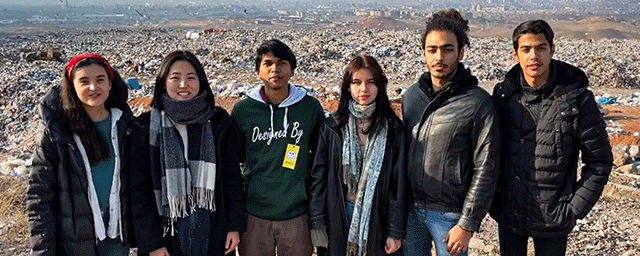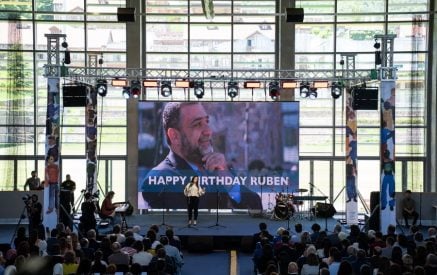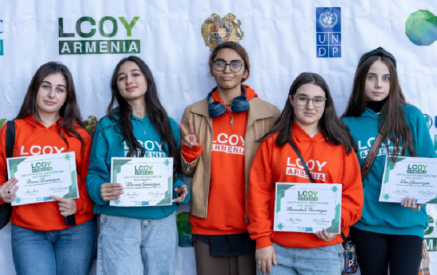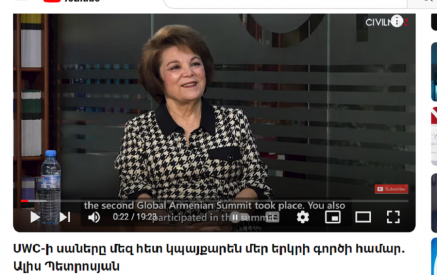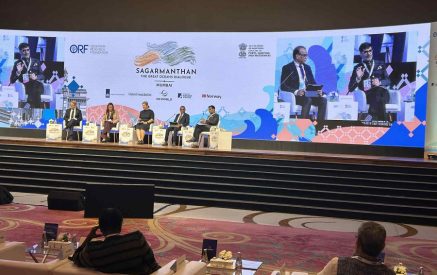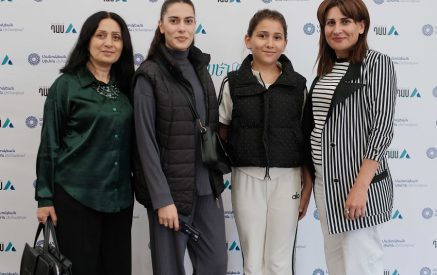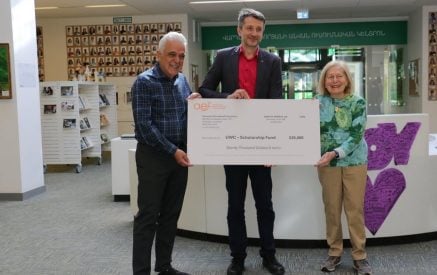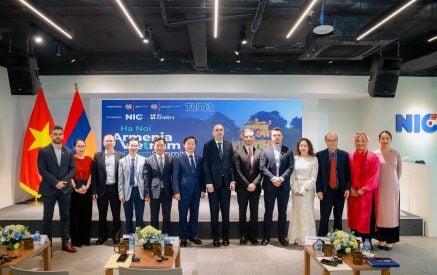After a closely contested final, we are thrilled to announce the Combili project developed by the UWC Dilijan team as the winner of the latest cycle of Young Aurora. The three finalist projects from UWC Dilijan, UWC South East Asia and UWC East Africa all chose to focus on finding innovative and creative ways to address sustainability issues within their local school environments, but the UWC Dilijan team has particularly impressed the judges.
Launched in 2017 by the Aurora Humanitarian Initiative in partnership with UWC International, Teach for All, and the African Leadership Academy, Young Aurora is designed to inspire young changemakers to address pressing humanitarian concerns within their local school communities. As UWC Dilijan Co-Founder, impact investor, and social entrepreneur, Veronika Zonabend explains, supporting student-led projects of this kind is now more important than ever: “It’s a pleasure and an honor to encourage and empower young people to believe that they are the architects of their own life and the future where we’re all going to live in. Big things and big changes start with small changes, which all of us make in our own communities.”
Hosted online and moderated by UWC International’s Executive Director, Faith Abiodun, it was clear how much hard work and dedication the three finalists had put into their project presentations. The teams radiated enthusiasm and passion when it came to discussing their innovative approaches to tackling complex humanitarian issues, with supporters from across the world joining the audience to cheer them on.
The winning UWC Dilijan team will receive 4,000 USD in prize money to help further develop their project so that generations to come will be able to benefit from addressing the issues caused by mounting levels of air pollution by finding effective ways to manage biowaste.
Read also
Recognizing that local communities in Yerevan (and cities worldwide) lack effective and sustainable systems for bio waste disposal, the Combili project creates small ‘urban garden’ models run by local children. The gardens turn biowaste, which contributes to toxic gas emissions, into fertile soil using modern composters. The project combines three core areas: education – led by children who participate in workshops about gardening and composting; recreational – providing a community space for local people to enjoy; and a modern method of composting – with tumblers taking 30-60 days to produce fertile soil.
Now in its sixth year, Young Aurora continues to provide an important platform for young leaders to develop and grow their ideas into workable solutions addressing some of the world’s most pressing needs. And it was wonderful to see an opening video reflecting on the scale of impact Young Aurora has had to date not just on the lives of those directly involved, but also on the communities the projects have served.
Ten schools from across the UWC movement and African Leadership Academy presented projects to a pre-selection panel. Given that issues of sustainability are becoming increasingly prevalent in all of our lives, it is perhaps no coincidence that the three projects chosen for the final all focus on addressing environmental concerns. While UWC South East Asia and UWC Dilijan chose to tackle the problems caused by biowaste, UWC East Africa found ways of supporting their local community by implementing a coral regeneration project.
The judging panel, made up of leading thinkers in education and social entrepreneurship, were well-equipped to assess each of the projects, asking insightful questions of each of the teams. This year’s jury included:
Anna Afeyan, Co-Founder, Noubar & Anna Afeyan Foundation
Diego Angemi, Chief of Social Policy, UNICEF
Prince Bashangezi, Waterford Kamhlaba UWCSA Alumnus (2020-2022) & 2021 Young Aurora winner
Mirza Dinayi, 2019 Aurora Prize Laureate; Co-Founder, Air Bridge Iraq
Ernesto Zedillo, Aurora Prize Selection Committee Member; Director, Center for the Study of Globalization at Yale
After the follow-up questions were answered, it was time for the jury to deliberate, and in the meantime the rest of the audience were invited to participate in a panel discussion focusing on the role of education in promoting peace. Moderated by UWC International’s Executive Director, Faith Abiodun, it featured the following panelists:
Syeda Ghulam Fatima, Aurora Prize Expert Panel Member; Secretary General, Bonded Labor Liberation Front Pakistan
Karen Liu, UWCSEA Alumna; Student, University of Chicago
Sibulele Sibaca, Aurora Prize Expert Panel Member; Founder, Sibulele Sibaca Foundation
And it was a lively discussion with key themes highlighted, including the important role educators can play in supporting and encouraging young people to maximize their talents and skills in service of creating more sustainable and peaceful societies.
Once it was time to come back and name the winners, there was palpable excitement in the air, and when UWC Dilijan were announced as the winners by Anna Afeyan, the Secretary of the Jury, the expression on the faces of the team was a joy to see. When explaining the decision of the Jury, Anna Afeyan noted: “It was very difficult. These projects are all of very high quality. They are creative; they are innovative. You’ve all worked hard to explain how your projects are solving local problems in your community and how you will be able to share your solutions with the wider world. We’ve had a close call between the projects, I’ll tell you that.”
Faith Abiodun, Executive Director of UWC International and the event’s moderator, joined her in praising the winning team and the runners-up: “Young Aurora is a reminder of the importance of positive action and the small steps that we can all take to find solutions for some the world’s most pressing challenges. Let’s continue to inspire young people everywhere to know that they can dream big, they can take action, and they can change the world.”
According to the winning team, the project was a true labor of love, and one that they hope will keep creating a valuable impact for many generations to come: “This project can be replicated anywhere. It’s a model that brings three key elements together: education, the tumblers, and the community garden. When these all three elements are put together, we can make a real change tackling this problem, because you can put these composters and tumblers everywhere, but no one will use them unless they are educated. That’s why it’s so important to educate people first.”



















































